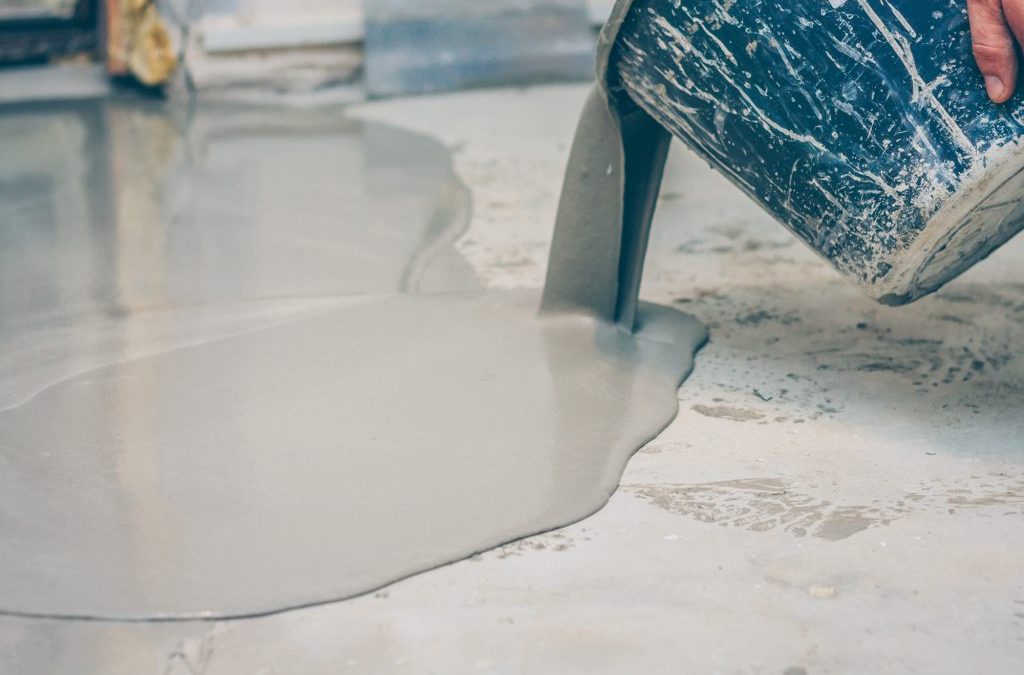55% of homeowners use their garage as their main entryway. While this can result in heavy wear, it doesn’t even factor in other uses or commercial wear. It’s essential to have a strong garage floor coating to ensure longevity.
In this article, we discover the best garage floor coating by comparing polyurea and epoxy garage floor coating options. Continue reading to find out why we think a polyurea garage floor coating is the best option.
What Is an Epoxy Garage Floor Coating?
Epoxy garage floor coating is a mixture of epoxy resin and a hardener. These two components react quickly with one another. They are only combined immediately prior to application.
This combination of materials adheres to your garage floor when applied. It creates a hard layer over the floor and serves as a protective layer. The seal establishes a strong barrier against different kinds of damage.
Products such as the EpoxyShield garage floor coating are similar, though lower-quality options, that don’t yield as effective results. While more affordable, they tend to receive poor reviews.
Benefits of Epoxy Garage Floor Coating
An epoxy floor coating creates a hard, protective surface for your garage floor. This hard layer makes it resistant to chipping and surface damage. It’s also resistant to water damage and stains.
Easy Clean-Up
Since the surface is non-porous, it’s quick and easy to clean. This makes it easy to mop up spills of oil, gas, or other liquids. It’s also easy to sweep with a shop broom when the floor is dry.
More Affordable
In comparison with polyurea, epoxy has a lower garage floor coating cost. It’s often the preferred choice for those on a tight budget.
Detriments of Epoxy Garage Floor Coating
While an epoxy garage floor coating is resistant to damage, it’s not indestructible. If you frequently have heavy objects that get dragged across the floor, you may want to seek other options.
This garage floor coating can also be damaged from frequent exposure to welding or other hot materials. You may experience burn marks on the floor over time.
Application Issues
The application of an epoxy garage floor coating can also present issues. If you are in need of a quick application, epoxy is not the choice for your garage. It can take up to three days before you can use it and 8 days for it to fully set.
If not done under perfect conditions, the coating may not set effectively. It may also warp or bulge over time if exposed to moisture from below the coating.
Exposure to UV light, especially extended exposure, breaks down the flooring. This results in a faded or yellow-tinted appearance.
Removal Issues
If you want to remove the coating, it is an involved and costly process. You’ll need to look for garage floor coating contractors to use a grinder for full removal.
Potential for Slips and Falls
Epoxy floor coating presents a potential hazard when wet. Since the floor is non-porous, the surface is especially smooth. Any spills of water or other liquids can easily result in slips and falls if not cleaned up quickly.
What Is a Polyurea Garage Floor Coating?
A polyurea garage floor coating is similar to epoxy only in that it can be applied as part of a two-step process and results in a hard, protective surface. Otherwise, it’s very different.
Unlike epoxy, a polyurea garage floor coating is flexible. This means it can better withstand scratches and other damage.
The coating creates a bond with the moisture in the floor. These bonds establish a strong barrier that is waterproof as well as scratchproof.
Benefits of Polyurea Garage Floor Coating
Because of its flexibility, a polyurea garage floor coating is nearly four times stronger than epoxy. It’s incredibly durable and has a longer lifespan. It also is resistant to cracking and peeling, even under heavy equipment.
Heat Resistant
Also unlike epoxy, polyurea can withstand extreme temperatures. Where welding will leave singe marks on epoxy, you won’t have any noticeable changes to polyurea.
UV Resistant
This is also the preferred garage floor coating for garages with an abundance of natural light. This is because it won’t fade or gain a yellow tinge after prolonged exposure.
Quick Setting
Where epoxy can take up to a week to fully set, polyurea is ready in roughly 24 hours. This makes it great for projects under strict time constraints.
Detriments of Polyurea Garage Floor Coating
One of the detriments of polyurea is the cost. Since the application lasts longer and is less prone to damage, it comes with a higher price tag when compared with epoxy.
Requires Skill
Due to its quick-drying nature, polyurea leaves little room for error. For this reason, it’s essential to work with a professional for the best final results.
Which Is the Best Garage Floor Coating?
You could ask several garage floor coating contractors which is the best garage floor coating and get slightly different responses. While an epoxy garage floor coating used to be the go-to, polyurea coatings are arguably taking the spotlight.
Since polyurea is significantly stronger, longer-lasting, and faster-drying, polyurea is often the best option for most garages. It’s especially useful if you need access to your garage quickly after install.
Get Your Garage Floor Coating
Now that you’ve seen the pros and cons of both polyurea and epoxy garage floor coating, you’re ready to start the application process. Once you schedule your installation, you’ll be well on your way to a durable garage floor.
Book your appointment with our skilled contractors today.

